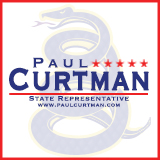
_
What makes someone vote YES on a bill they don’t like?
After seeing so many good people vote in favor of horrendous bills (both Democrats and Republicans in state and federal government) I decided to start asking why they were voting for them. Recently I approached some politicians on an economic development bill that, in my mind, was very unfair to small businesses and would have implemented a terrible tax policy geared toward incentivizing big business over small businesses and competitors, all at the expense of the taxpayer. I was also concerned by the new bureaucracy that would have been created and been given the ability to acquire new debt backed by the taxpayers. The bill was being pushed as a “jobs” bill, which by itself is a bribe only because no one wants to vote against “jobs.”
I asked some of the office holders what they thought about the bill and after they told me they were in favor of it I asked them why. The answers I received from many of them were disappointingly shallow: “Well, something HAS to be done.” Or, “Well, I’m against some of these unfair economic policies and debt but I have to vote for it.” Even after I tried to inform some “conservatives” that the bill would drastically grow the size of government at an expense that we cannot fully predict, I still heard things like, “There is a whole lot I don’t like about this bill but there are a couple good things so I’m going to vote for it.”
A couple years ago I spoke with a US Congressman who voted in favor a defense-spending bill. The problem with this particular bill is that the so-called “hate-crime” amendment was attached to it. I don’t believe that any crime is more or less heinous based on what motivates it, a crime is a crime period, otherwise there is no equality under the law. Murder and rape should not be worse because the victim fit a certain demographic. If we say it is more evil to murder a black or white person than it would be murder a Latino or Asian person then there is no equality under the law and what we are really doing is dehumanizing certain groups of people. I asked the Congressman why he voted for the bill if it promoted such inequality of the law and the answer was that he didn’t want to vote for it but he had to in order to fund the troops. What sense does it make to fund our troops who fight for our freedoms and at the same time erase the equal protection of those freedoms? He basically told me he understands my point and would have voted NO on that principle except a NO vote would have looked bad. The troops would have been funded even if this bill had failed because of this amendment; the funding bill would have just been reintroduced.
These experiences have caused me to wonder, where does a person draw the line on how they vote? At what point does the cost of a bill outweigh any benefit that it might have? How much liberty are we willing to foreclose on for the sake of what might seem to be a more noble cause? When we are told that a bill has a lot of good but a lot of bad in it, do we vote for it so we can claim the good only? I don’t believe it works that way. If we vote for a bill that has some poison in it only because we want to claim ownership of the good part, we must also accept that we are responsible for the poison too.
For example, if you are hungry, you may go to a restaurant and order a hamburger that comes with french-fries. Although you may not want the fries, the waitress tells you that they are included in the price of the meal, you reluctantly nod your head and accept the fries but only because you want the hamburger. This is a good description of an acceptable compromise. Although you would rather had some other side, you accepted the fries since they came with your hamburger. You would much rather have had some other side dish to satisfy your hunger but the fries will still do that if you choose to eat them but it really comes down to preference in this particular case. This illustrates how it looks when someone might vote for a bill that has a “side” that we may not prefer but really can’t be called bad. If it doesn’t violate the proper role of government or the Constitution but still satisfies a particular statutory need, you may vote for the larger bill that it is attached to although you would prefer a different “side.” For example, if you ask a legislator why he voted for such a bill you might hear him say, “I don’t necessarily like lowering the speed limit on certain dangerous state highways, but it is in our jurisdiction to do so and it is a smaller part of a bill we need to pass in order to rebuild some damaged bridges across the Missouri River so I will vote for it.”
Now lets say that you order a hamburger off the menu and you are told that it comes with a little e-coli. Do you still order it? Do you use the argument that so many in government use to vote in favor of bad bills and just say, “Well, I don’t like e-coli but it is only a little and I need to eat lunch so OK, I’ll take it.” I seriously doubt you would and I think it is safe to say that if anyone used that explanation to feed your child a hamburger with any amount of e-coli, you would sue them for negligence in the care of your child. Why then do we use that explanation to destroy our liberty? Isn’t this what we are hearing when a politician says, “Well, I know that this bill will send us deeper into debt, grow the size of government or infringe on our freedoms but we need to do something.”
A lesson I learned as an infantry squad leader in the Marine Corps, is that it can be fine to compromise, if you must, in order to accomplish the mission but if your compromise in any way defeats the purpose your mission, then you are the enemy's new best friend. The proper role of government is to protect people’s liberty. If we vote for compromises that in turn destroy liberty and further enslave us to more debt then it is safe to say that we have become our own enemy. Bottom line: when you compromise the principle, you are NOT compromising, you are surrendering.

 RSS Feed
RSS Feed
